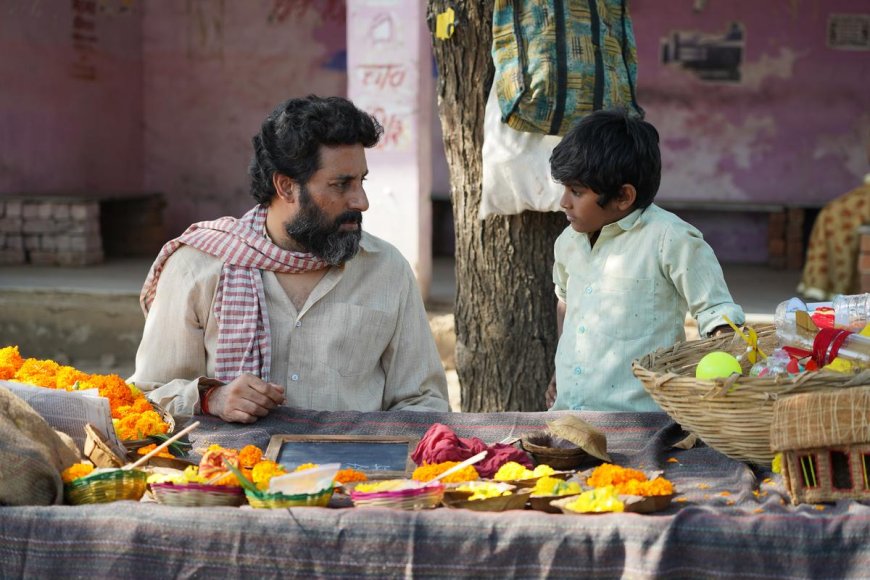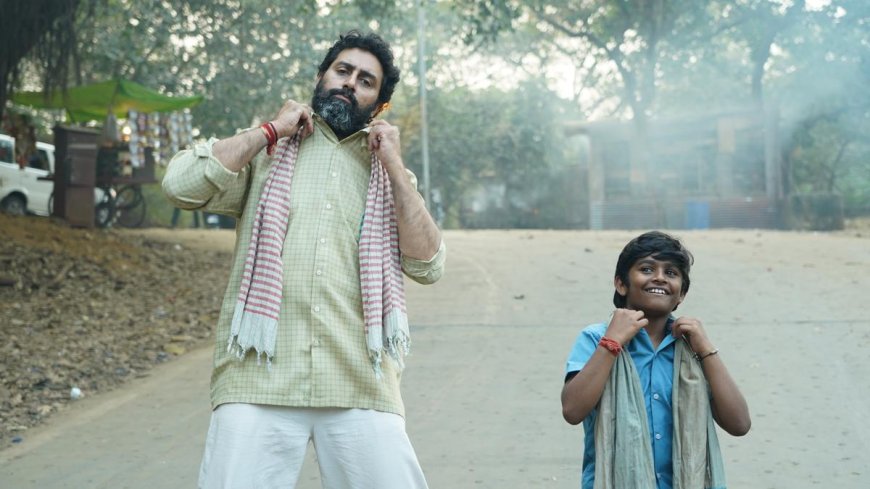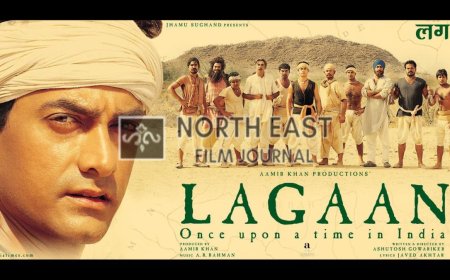KAALIDHAR LAAPATAA: A BRILLIANT CELLULOID ESSAY ON BONDING A TRIBUTE TO ABHISHEK BACHCHAN
Renowned film critic Shoma A. Chatterji offers an insightful review of "Kaalidhar Laapataa"—a masterful cinematic exploration of human connection and a heartfelt tribute to Abhishek Bachchan.

“Blood is thicker than water” is an adage we have grown with. But we conveniently forget that even Lord Krishna was not brought up by his blood parents. So, how do relationships play out in real life? For an explainable answer, you need to watch Kaalidhar Laapataa where we discover that blood is perhaps never thicker than water. Why? Kaalidhar’s two younger brothers, steeped in debt, have planned to get rid of their eldest brother Kaalidhar (Abhishek Bachchan) or K.D. who has problems with his memory on the one hand and is mentally deficient on the other. Is that why they wish to rid of Kaalidhar? Not necessarily. The costs of his treatment are quite high and it is Kaalidhar, the eldest, who has built the house they live in and also, bought tracts of land in the village which are written in his name.

Image: Film still
They take his thumb impression on the land and house documents when he is admitted to a hospital for a seizure. A ward boy suggests cutting off the drip which will kill him instantly. But a ward nurse steps in and Kaalidhar’s life is saved. But they go one step ahead. They deliberately ‘lose’ him in the Kumbh Mela and disappear but remember to file a missing complaint at the Mela’s police tent. Unaware of his brothers’ and his sister-in-law’s devious plans, Kaalidhar sets out looking for them. He is deeply hurt when he overhears their plans to abandon him and decides to walk away on his own and never get back to a home which does not want him anymore.
This is when the story begins. It brings a dynamic change in the life of this 40-something lost man, Kaalidhar as by chance, he meets an eight-year-old orphan off the streets who must work for a living and almost organically, a bond grows, and stays between Ballu (Daivik Baghela), a dirty, unkempt, naughty, perky and precocious orphan, is initially angry to find this bearded, confused and aimless middle-aged man capturing his sleeping place under a tree. But slowly, a friendship is born, nurtured and built between this man and this streetside orphan who works at anything to keep body and soul together and has taught himself the strangest lesson of life – to remain happy and worldly wise, never mind come what may. What is common between them is that they are both alone, discarded by those who should have belonged.
Their friendship begins with Kaalidhar’s obsession for biryani which he could not savour at the popular village dhaba he had no money. Once he and Ballu put their heads together and earn through completely disparate and odd jobs like Kaalidhar dressing up for a fair performance of Kumbha Karna and carrying a costumed Ballu away as the audience cheers, or taking up digging holes in the ground, selling flowers or plastic toys or anything that can fetch Kaalidhar his biryani and Ballu his favourite samosas at street stalls. On Bally’s side, the small boy makes a bucket list of Kaalidhar’s wishes such as – dancing at a wedding, playing roles in costume plays at the village fair, savouring biryani, drinking Vilaiytee wine, riding a two-wheeler, travelling in an ac train, meeting his old sweetheart Meera, to wear a fashionable suit, the works. And he goes ahead to fulfill all of them in his own way. When Kaalidhar falls very sick after his stint with vilaytee wine, he also approaches a doctor. When the doctor asks him what the patient means to him, Bally simply says “sab kuch.”
It is as if the two constantly fluctuate between mothering each other in different ways. The one wish Kaalidhar does not talk about is also dug up by the clever and worldly wise Ballu. He learns that Kaalidhar was in love with Meera who he could not marry but misses her and feels he has failed her. So, off they go in search of Meera in a distant village. Meera, now a widow, is pleasantly surprised to suddenly find a suited-and-booted Kaalidhar at her door with a small boy in two.
All this while, Subodh, a bumbling cop already threatened with a sack (Mohammad Zeeshan Ayub) promises his boss that he will certainly fetch Kaalidhar for his brothers. They now are looking frantically for Kaalidhar because the documents of the property were destroyed completely in a sudden fire. They also put up posters about their missing brother everywhere. Bally pounces on one of these and learns of his sad history. Subodh too gets hold of one but fails to recognize a heavily made-up as Kumbhakarna-Kaalidhar even when they come face to face.
And so the story moves on, following the adventures and misadventures of this completely mismatched friends in which Ballu is the one who forces the illiterate and reluctant Kaalidhar to learn to read and write. There is a bit of Kaalidhar’s boyhood showing that he is afraid of water because he had watched his father drown in the rivers in their village as a young boy. But unwittingly, he hurts Ballu by insulting him for being an ‘orphan’ and not understanding what a ‘family’ means.
Kaalidhar Laapata is a Hindi remake of the Tamil film KD a Karuppu Durai, directed by Madhumita who has also directed this Hindi version. But there are some minor differences. While in the Tamil version, KD (Mu Ramaswamy) is an 80-year-old man, whose children plan to kill him through euthanasia to usurp his property, in the Hindi version Kaalidhar is a middle-aged man suffering from memory-loss. This has been done probably to bring in the Bollywood touch of an old love story with a pretty widow thrown in so that when the film ends, Ballu is already in a boarding school and Kaalidhar is riding merrily away on a motor cycle with Meera riding piggy-back, holding him close.
The sole lapse in the entire film is that the script fails even to touch upon the fits and nightmares Kaalidhar suffers from with tremors shaking his entire body though it seems to be his main illness. But his fear of water is beautifully narrated through flashbacks to his memories as a boy having witnesses his father drowning in the river waters. But he gets rid of this fear over time. The most painful point in the narrative is when Kaalidhar forces Bally to go to a boarding school to get the right education. A beautiful film that haunts you much after it is over.
What's Your Reaction?

































































